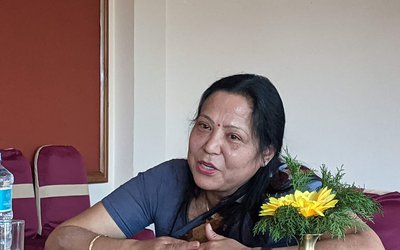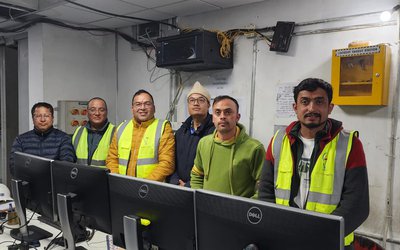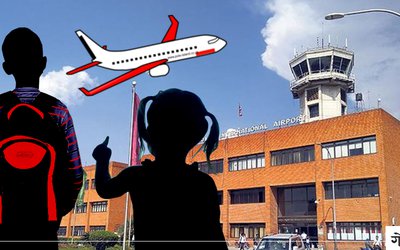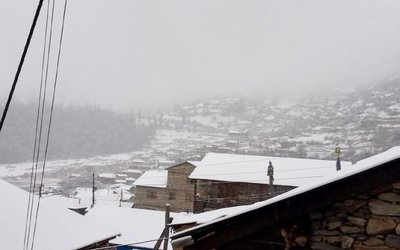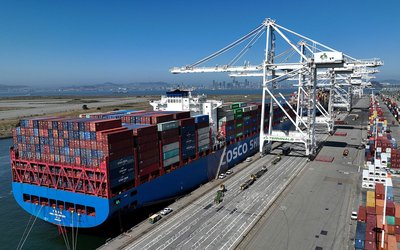Secretary of Ministry of Labor and Transport Management Som Lal Subedi is one of the young and dynamic secretaries in the government service of Nepal. Subedi, who spent his long career in the Ministry of Local Development, is also known for taking quick decisions. In the context of May Day or the World Labor Day, Subedi spoke to New Spotlight on various issues.
How do you describe the present state of labor disputes?
There are two sides to labor disputes, legal issues and practices in case of non-compliance. Ambition is another aspect. There are high expectations and low achievements. On the question of benefits and benefit sharing, disputes come up. Most of the disputes appear due to lack of transparency and accountability. There are various reasons behind the labor disputes in the country. There is a multiplicity of dimensions.
How do you see them in Nepal’s context?
In the context of Nepal, they are related to transparency. There is the need to have transparency at all levels, including the management as well as the labor level. If there are transparent ways of sharing the benefits, I don’t think major labor unrest will appear. Misunderstanding between labor unions and industrialists are another reason for labor unrest in Nepal. Of course, in some cases, trade unions are carrying political agenda with focus on the question of rights of the workers, ignoring the responsibilities. Similarly, entrepreneurs also make the mistakes by trying to undermine the genuine demands of workers.
Industrialists have been talking about the need to amend the present labor act. How do you look at it?
We have very good acts and policies. So far as their implementation is concerned, we can see many lapses. We formulate the laws in haste and realize during the process of implementation that it is difficult to realize them. Sometimes, the acts are promulgated by inadequate legislation processes. This is the reason amendments become necessary. Labor act is no exception.
It is said that foreign investors are wary of investing in Nepal because of labor unrest. How do you look at this aspect?
One can interpret it in both ways. There exists labor unrest. If seen from the other side, it does not exist at all. If there are other infrastructure, this is only one part. The labor issue is unnecessarily over raised. This is not only one part of the process of industrialization. If there is basic infrastructure like electricity and market, no laborer will prefer unrest. If laborers get a tangible individual benefit from a particular factory, there is a rare possibility of labor unrest. I don’t agree that labor is only reason behind the declining foreign investment options. Good governance, transparency, accountability and infrastructure, power generation and access to market are also equally important. Besides that there must be right persons in the right places. Labor unrest can be minimized by making the system accountable and transparent. I am not saying that there is no labor unrest but what I am saying is it is one of the elements to discourage the foreign investors.
What is your opinion about what needs to be done?
Our country has no strong social security. This is the reason nobody wants to lead the agitation or unrest that can make them unemployed. Nepal does not have a long history of the industrialization. Most of the workers available in labor market are unskilled and illiterate. They don’t know their rights and responsibilities. Discrimination in salary and facility also provokes the workers to go for strike. Our experiences have shown that most of the labor disputes are related to right demand/ issues in the enterprise.
What are lacking?
There is no platform (tripartite) in district level as well as in central level for social dialogue in order to make harmonic industrial relations. There is no separate act for occupational safety and health. Some provisions of occupational safety and health are included in existing labor act which are not sufficient to improve the working environment. Workers give more focus on monetary benefits and management takes investment in improving working conditions as blocking of capital. Due to poor working conditions, occupational accidents occur and increase. If we have a good system, we can minimize the existing labor problems.
How do you look at the frequent incidents of lock up and physical mishandling of management by workers. How do you look at this?
There is a system to take steps. However, this kind of scenario appears because of the tendency of jumping. I have to admit that there is a weak labor enforcement and inspection mechanism. There are only 10 labor officers through the country. Human resources as well physical facilities are inadequate. Labor offices are mostly engaged in trade union registration work and they don’t have time to inspect he offices. There are district administrative offices and labor offices. The government’s role is just to facilitate. The role of facilitator is a very difficult work.
There is the need to take rights and duties together. We talk much about rights but not about duties. We have two things, vested interests and political interests, that are hindering smooth work.
- SWISS SUPPORT: Construction Of A Trekking Trail In Koshi
- Dec 19, 2024
- PM OLI'S VISIT TO CHINA: BRI Agreement
- Dec 16, 2024
- RASUWAGADHI AND SANJEN: Begin Generation
- Dec 03, 2024
- NEPAL, INDIA ELECTRICITY TRADE Nepal's Advantage
- Dec 02, 2024
- PM Oli'S VISIT TO CHINA: Nepal's Dilemma
- Dec 01, 2024






